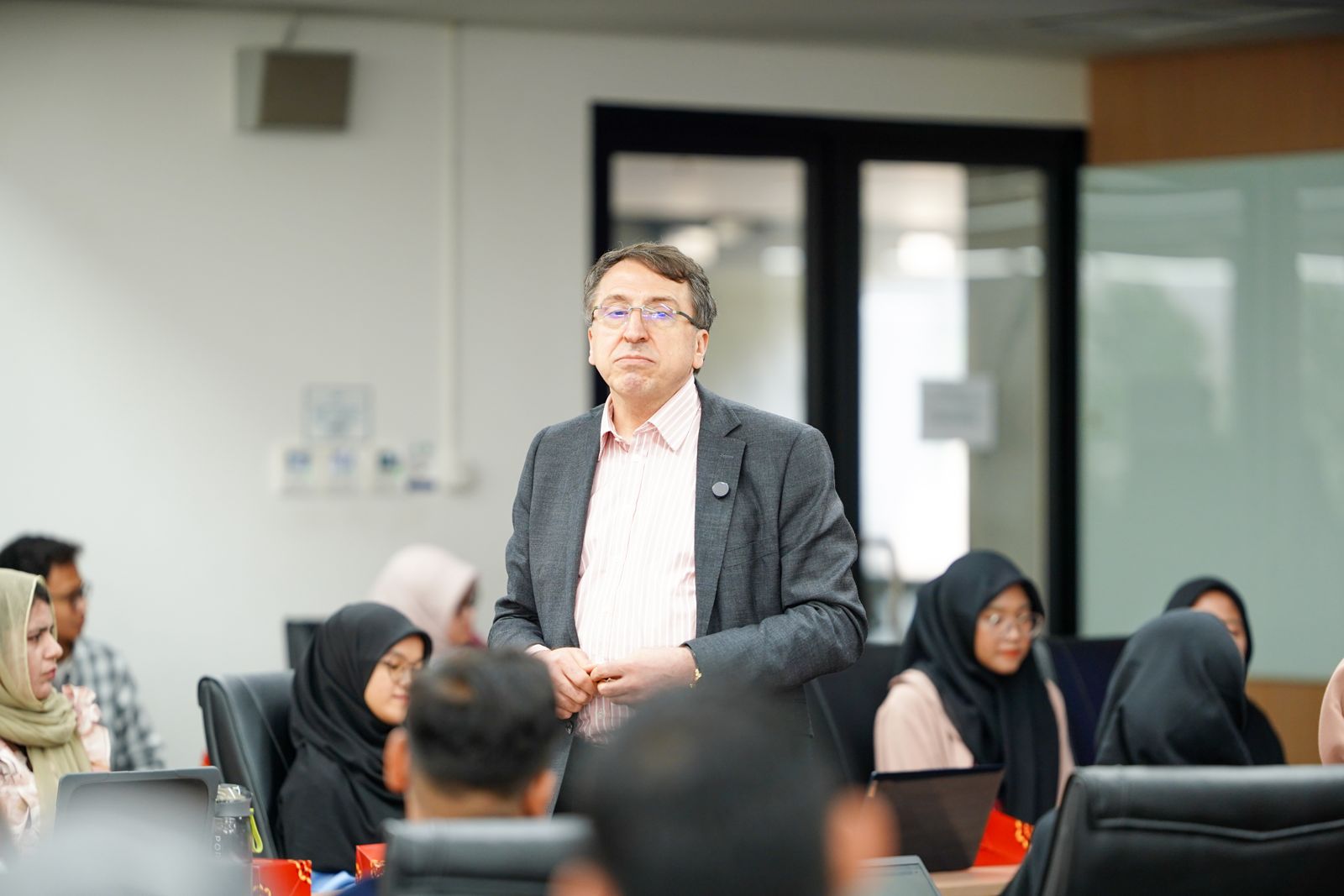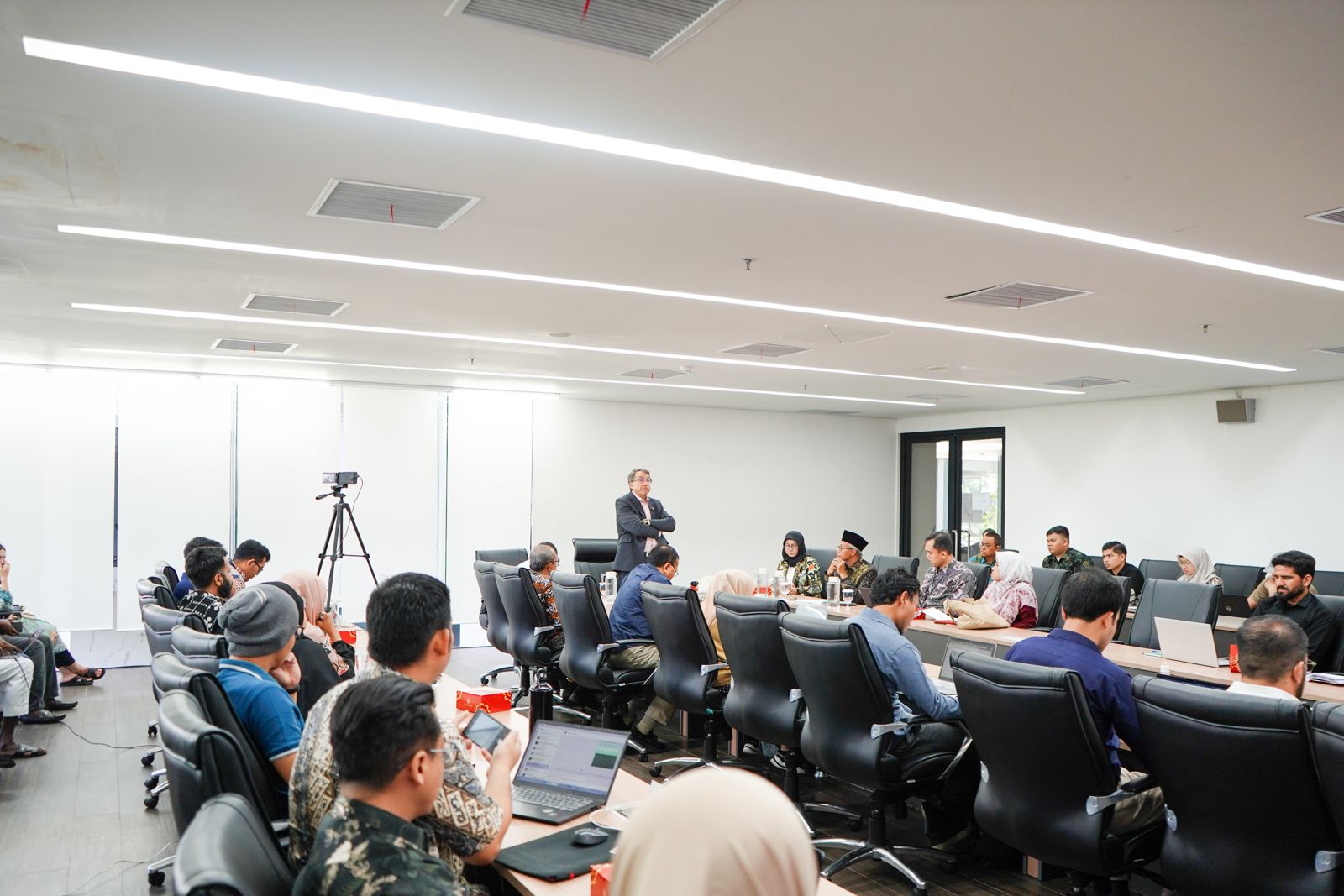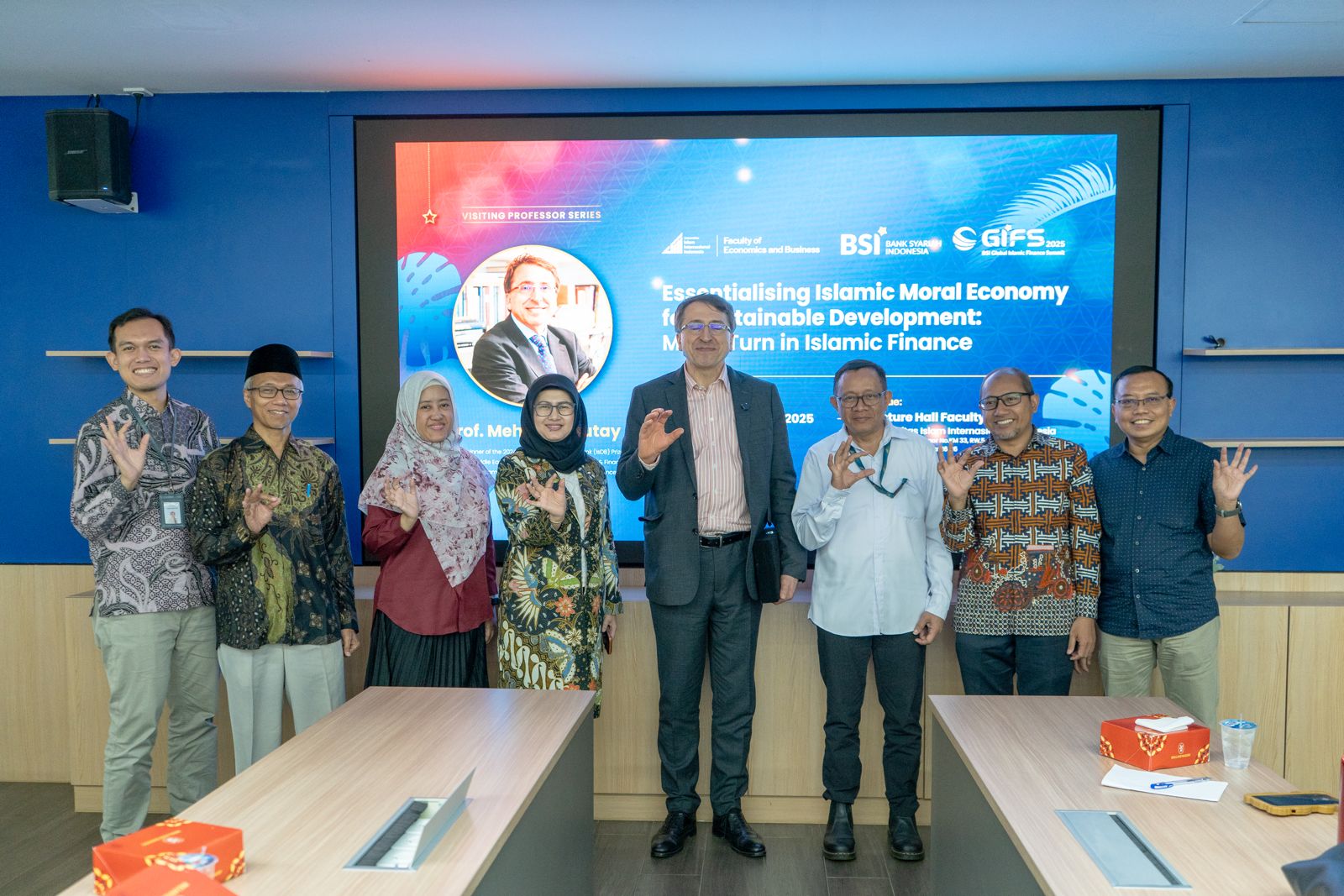More From News
Exploring the Depth of the Meaning of Fasting
March 3, 2026
May 16, 2025
Contributor/Photo: Alfi Fauzilah| Editor: Supriyono

In a presentation titled “Essentialising Islamic Moral Economy for Sustainable Development: Moral Turn in Islamic Finance,” Professor Mehmet Asutay, a visiting professor at the UIII Faculty of Economics and Business from Durham University, UK, called for a major rethink of Islamic finance. He argued that while Islamic finance has grown rapidly, it has lost its moral purpose and has instead become too similar to conventional finance.
Prof. Asutay criticized the global economic system, saying it is based on capitalism and focuses too much on profit and efficiency, while ignoring justice and ethics. He noted that today’s economy is heavily financialized, where money moves more in financial markets than in real economic activity, leaving many people indebted and powerless.
He expressed concern that Islamic finance, instead of offering a real alternative, has followed the same path—using profit-driven tools and products that mimic conventional banking. Many Islamic financial products, like murabaha (profit sale) and tawarruq (cash workaround), are focused on compliance rather than moral goals, making Islamic finance just another part of the existing system.

To fix this, Prof. Asutay urged a return to core Islamic principles such as tawhid (divine unity), mizan (balance), ‘adl (justice), and ihsan (benevolence). He emphasized that economic life in Islam should be guided by values, where people act not just as rational individuals but as moral beings accountable to God and society. Tools like zakah (obligatory almsgiving) should be seen as structural mechanisms to ensure fairness and dignity for all.
He also criticized global development frameworks such as the UN’s Sustainable Development Goals (SDGs) and Corporate Social Responsibility (CSR) efforts, saying they often fail to challenge the unjust structures of the current economic system. Without a deeper moral and philosophical shift, these efforts risk becoming shallow or even misleading.

Prof. Asutay proposed a new model he calls the “Islamic Moral Economy,” which puts justice, equity, and human dignity at the center. This model shifts focus from maximizing profit to achieving falah—success in both this life and the next. It emphasizes risk-sharing over debt, collective welfare over individual gain, and long-term development over short-term growth.
He concluded by urging Islamic finance to move away from just ticking compliance boxes and instead lead a moral transformation of the global economy—where finance serves the people, not the other way around. His message strongly resonates with UIII’s core values, which emphasize moral integrity, social justice, and the pursuit of knowledge that benefits society at large.

Universitas Islam Internasional Indonesia